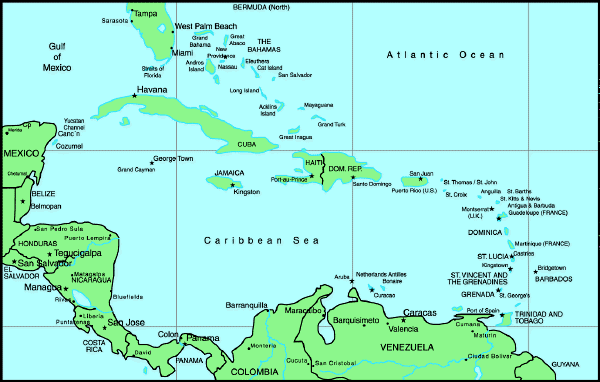Cuba: Sovereignty Matters

Two random Havana photos off the wires in recent days....

A second of two fine Bahamanian editorials (not usually a bastion of radical thinking) strongly condemning the Cuban Plan for Transition report approved by President Bush last week. It is interesting that regional countries, (even those of the right) supposedly the target of Castro-Chavez 'meddling,' are constantly more supporive of Cuba and Venezuela than even Democrats in the US are. For instance, they have the nerve to declare that the Revolution represents the majority in Cuba and works in their interests.
The Bahama Journal - 17th July editorial
We recently suggested that today we see a United States that will not rest in its efforts to destabilize that nation’s –namely Cuba- political system. In this regard, information reaching us suggests a US Cabinet-led panel has recommended tightening an embargo against Cuba and boosting opposition financing. The legend is being broadcast that Cuba is somehow teamed with Venezuela in a bid to thwart regional democracy.
We are also indicated that we were learning that the draft by the Commission for Assistance to a Free Cuba, presented to President George W. Bush last Wednesday at a National Security Council meeting, says "there are clear signs the (Cuban) regime is using money provided by the (Hugo) Chavez government in Venezuela to reactivate its networks in the hemisphere to subvert democratic governments."
As we noted, quite frankly, we believe none of this. What we do believe is that the United States is still embarked on a project designed to subvert Fidel Castro, his regime and all that they represent and signify in the world.
This is a pity.
And now, there is more information suggesting that chaos looms.
Laura Wides-Munoz suggests that a "presidential commission's report on U.S. plans to promote democracy in Cuba has earned applause from Cuban exiles, particularly for an $80 million commitment to bolster civil society and independent media. But while many expressed broad support for the commission's message, some were wary of how, and if, the promised funds will be spent".
As noted previously, the recommendations, released this week by the Presidential Commission for Assistance to a Free Cuba, would target money to help nongovernmental groups create change in Cuba. It was issued as Fidel Castro's government tries to maintain status quo."
Here the problems and bickering predictably arise, "It would be very harmful if they said that money will come and then people didn't get it," said Orlando Gutierrez, the National Secretary of the Miami-based Cuban Democratic Directorate, which seeks to provide humanitarian aid to the pro-democracy movement on the island."
We are also learning that "some dissidents on the island have expressed concern that the money will only bolster the Cuban government's allegations that the opposition is on the U.S. government's payrolls. Communist officials accused 75 opponents captured in 2003 of being on U.S. payrolls, an allegation dissidents and Washington deny."
We are also learning that "the report also recommends Interpol receive the names of Cuban officers who in 1996 shot down two private planes flying over international waters in search of Cuban rafters."
It might also be of interest to note that "during a discussion with students at Florida International University on Wednesday, Jose Basulto, the lone survivor of the 1996 attack and a member of the 1961 Bay of Pigs Invasion, recalled how CIA agents selected and trained him and others for the failed attack, and how at the last minute President Kennedy chose not to send in air support."
This exile veteran, "Basulto said he didn't want to see the history of false promises repeated. He also expressed concern that the $80 million could be used by the U.S. government to cultivate leaders inside and outside the island who might not represent the interests of the majority".
Our question in this regard, is this: might it not be the turth that the Cuban people in Cuba do represent the "interests of the majority" as they have from 1959?
And might it not be true that the interests of the majority and the interests of the Cuban Revolution are in a state of congruence?
And might this fact more so than any other fact explain the longevity of the Cuban Revolution as it has been molded and shaped by Fidel Castro and others who were privileged to work, serve and lead?
We are inclined to agree with Cuban officials who say that "a US proposal aimed at ensuring a transition to US-style democracy on the communist-run island after President Fidel Castro is gone is a sinister plan for regime change".
We are also inclined to agree with those same Cuban officials when they say that "this is a true threat of aggression." More specifically, we are inclined to agree with Cuban parliament speaker Ricardo Alarcon when he talks about the plans ‘sinister pretenses’.
An angry Alarcon explains, "We have the right to think the worst," he said of the classified section. "We have the right to think about an attempt to assassinate Fidel, or a war."
In time, we will know more.
But as of this moment, our conclusion is that the United States should step back from this latest provocation and allow Cuba to be Cuba that is as a free and truly sovereign space in the Americas.






